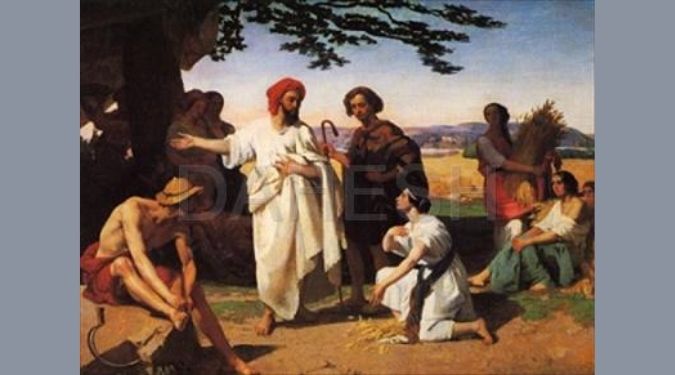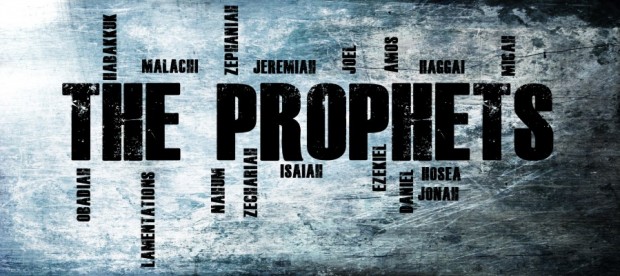In my last post, I wrote that the Bible alone was never meant to be our only rule of faith. I discussed the need to study both the Bible and the teachings of the Church Fathers who were entrusted to pass on to us the teachings of Jesus and the apostles. We called the oral teaching passed down from the apostles “Tradition.” Let’s talk a bit more about Tradition.
Wait, didn’t Jesus condemn tradition? Well, in Matthew 15:1-9 we see that he certainly condemned the Pharisees for using a certain man-made tradition to cheat their own parents. Does this then extend to all tradition? Looking to our Bible we see that the inspired authors of the Bible actually affirmed oral apostolic Tradition, the kind that we are talking about. In fact, St. Paul said, “So then, brethren, stand firm. and hold to the traditions which were taught by us either by word of mouth or by letter” (2 Thes. 2:15). And again, later in the same letter: “Now we command you, brethren, in the name of our Lord Jesus Christ, that you keep away from any brother who is living in idleness and not in accord with the tradition that you received from us.” 2 Thes. 3:6.Lastly, chapter l l of his first letter to the Corinthians opens: “I commend you because you remember me in everything and maintain the traditions even as I have delivered them to you.”(I Cor 11:2).
The Koine Greek word commonly translated into English as “tradition” here was παράδοσις, transliterated “paradosis” and pronounced “par-AD-os-is”. This word means a handing down or over, or a tradition. Forms of this word are used exactly thirteen times in the New Testament and in nine of those instances, including the example from the Gospel of Matthew above, it is used pejoratively to refer to certain traditions of the Pharisees. However, Paul, the former Pharisee, only uses the term positively to refer to the apostolic tradition he conveyed to the Church in Thessalonica and Corinth.
What we mean by “Tradition”? Catholics have acquired many traditions (with a small “t”) like novenas, processions and other practices, and while these are often good, they are not considered part of apostolic Tradition. The best place to find the definition of Tradition with a capital “T” is in the Catechism of the Catholic Church. There we read, “The Tradition here in question comes from the apostles and hands on what they, received from Jesus’ teaching and example and what they learned from the Holy Spirit.” [CCC 83].
That answers “where” Tradition comes from, but how does it come to us? For the answer, let’s turn to the Catechism again: “Through Tradition, the Church, in her doctrine, life and worship, perpetuates and transmits to every generation all that she herself is, all that she believes “‘ [CCC 78]. There are, then, are three ways that the Church passes the Gospel on to us through Tradition: doctrine, life and worship.
First, we can learn doctrine from the teaching and preaching of the Pope and bishops, and from their homilies, encyclicals and other writings. The Catechism of the Catholic Church is also a great place to start. We took to the Pope and bishops’ teaching, also called the Magisterium. for explanations of the truths of faith, authoritative interpretation of Scripture, and for moral guidance. Jesus promised to be with the Church and guiding it until the end of time (Matt. 28:20), so we can trust the teaching of the apostles and their successors.
A second way that the Gospel is delivered to us through Tradition is by the heroic examples of the lives of the Saints and the works that they practiced. They preached the Gospel with their lives. The martyrs, those who died for the Faith, bear witness to the Gospel in a particularly powerful way.
A third way that Tradition presents the Gospel to us is through our worship and sacraments, which we also call “the Liturgy.” For example,“Father, You so loved the world that in the fullness of time you sent your only Son to be our Savior…” . You may recognize prayer from the Mass. We also hear the Gospel in the confessional: “God, the Father of mercies, through the death and resurrection of his Son, has reconciled the world to himself and sent the Holy Spirit among us for the forgiveness of sins… ” . You see, we often forget that the Gospel is proclaimed with great power in each of the sacraments. This has been true throughout the entire history of the Church.
Some of our fellow Christians often accuse us of following man-made doctrines. They say we follow “traditions” (with a small “t”) just like the Pharisees whom Jesus condemned. Tradition can shed light on Scripture and Scripture complements Tradition. Because doctrines such as the Immaculate Conception, Purgatory, Confession and the Communion of Saints may not be obvious to everyone from Scripture, the preaching of these Traditions is necessary. As St. John told us,“…there are many other things which Jesus did; were every one of them to he written, 1 suppose that the world itself could not contain the books that would be written” (John 21:25).



